Posted on 4/27/2023

As much as we love our furry friends, their hair can be shed in our vehicle, making it a nuisance. It clings to the upholstery, carpets, and floor mats and can be tough to remove. Fortunately, there are some tips you can use to get rid of pet hair from your car easy-peasy. Use a pet hair removal brush or glove: There are special brushes and gloves designed to eliminate pet hair from fabric surfaces. You can find them at pet stores or online. Simply rub the brush or glove over the surface of the fabric in one direction, and the pet hair will stick to it. Use a lint roller: A lint roller can also be used to remove pet hair from fabric surfaces. Roll the lint roller over the surface in one direction, and the pet hair will stick to it. You may need to use multiple sheets to get all the hair. Use a rubber glove: A rubber glove can be used to remove pet hair from fabric surfaces too. First, put on the rubber glove, dampen it with water, and rub it over the surface in one direction. The pe ... read more
Posted on 3/17/2023
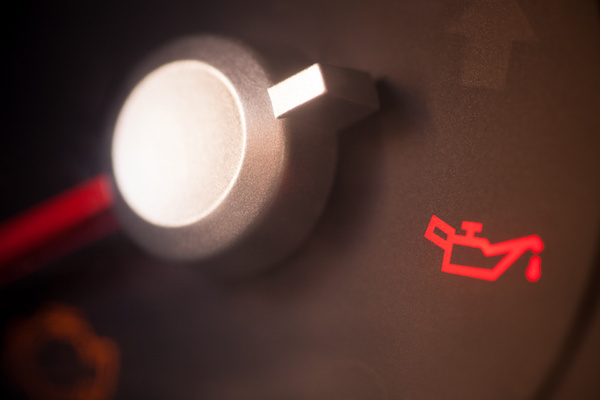
The oil light is an important warning indicator in your car that you should always take seriously. It signals that there is a problem with your engine oil system, which is a crucial component for keeping your car running smoothly. Here's what the oil light means and what you should do if it comes on. What does the oil light mean? The oil light is usually represented by an oil can icon or the word "OIL" on your car's dashboard. When this light comes on, it means that the oil pressure in your motor has dropped too low, which can cause serious damage to your engine if not addressed immediately. Low oil pressure can be caused by many different things, including a low oil level, a malfunctioning oil pump, or a clogged oil filter. What should you do if the oil light comes on? If the oil light comes on while you're on the road, the first thing you should do is pull over to a safe location as soon as possible. Continuing to drive with the oil light on can cause major ... read more
Posted on 2/28/2023
.jpeg)
When it comes to maintaining your vehicle, it's important to consider all of the different systems and components that need regular care and attention. One often-overlooked system is the windshield washer fluid. Many drivers may not think to service this system, but it's actually an important aspect of keeping your vehicle in good working order. Windshield washer fluid is used to keep your windshield clean and clear while you're driving. It's important to check the fluid levels regularly and refill them as needed, especially in the winter when the temperature drops. Cold weather can cause the fluid to freeze, which can lead to a clogged washer system. In addition, the fluid can become dirty or contaminated over time, which can cause streaks and smears on your windshield. When servicing your windshield washer fluid, it's important to first check the fluid levels and refill them as needed. You should also check the fluid's condition; if it appears dirty or cont ... read more
Posted on 1/12/2023

As we brace ourselves for what brings us 2023, many people are in the process of finalizing their resolutions for the New Year. Some people prioritize health goals, social goals, and career goals. But what about car improvement goals? Without your car, how will you get to the gym, to work, or anywhere else to achieve your other goals? To keep your vehicle more reliable and safe on the road this year, here are 5 maintenance tips and tricks you should know for 2023. Checking Engine Oil - Arguably, this is one of the most important skills every vehicle owner should know. Engine oil is what keeps your engine running. You should get into the habit of checking your oil levels as often as once a month. Luckily, manufacturers make it very easy with the dipstick under the hood. If you have any questions, refer to your owner’s manual for the exact steps. Once you learn how to do it, checking your oil can be done in a matter of minutes. Don’t forget to schedule your oil change if t ... read more
Posted on 1/10/2023
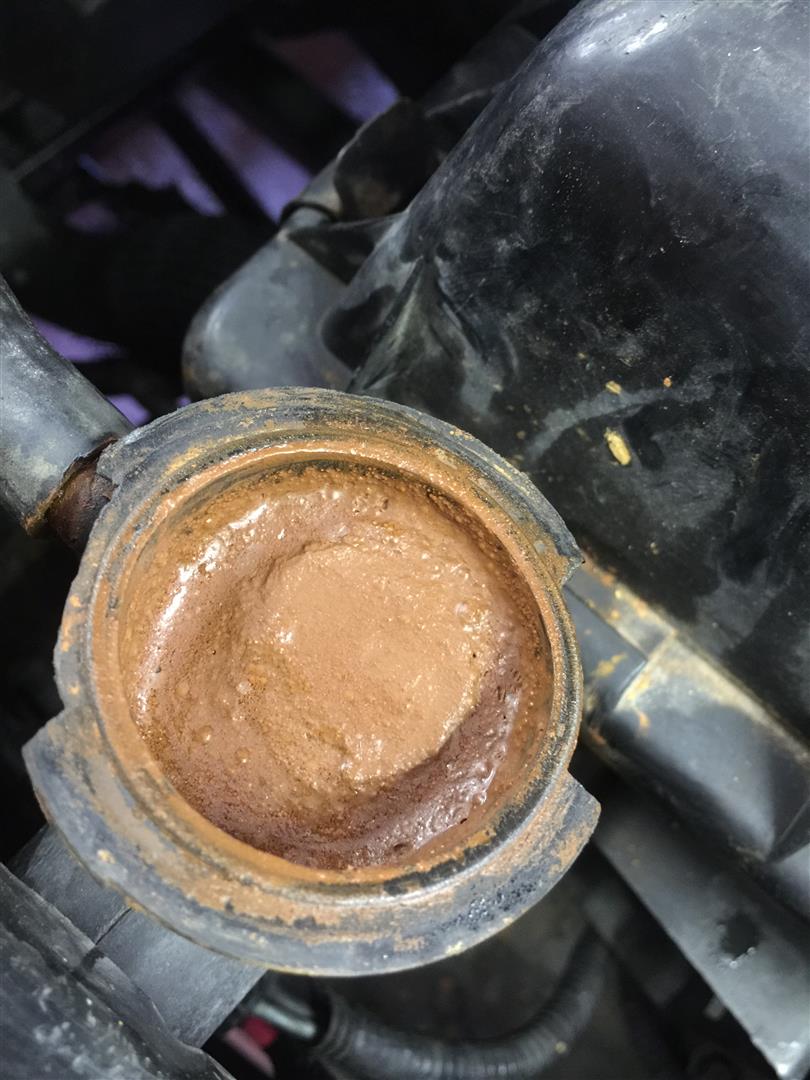
A brief introduction to Car Coolant: This picture shows the worse consistency your coolant can have. Coolant fluid should flow like water. Coolant keeps your car operating at the temperature it needs to be at. Under the hood, it keeps your car from overheating and causing serious damage, like destroying the engine or causing leaks that can damage other systems. In the cabin where you spend most of the time, it affects your air conditioning and heating system. What and Where is the coolant system? The coolant system works to keep your engine from overheating. It absorbs the heat and pushes the now-hot coolant toward the radiator where it is cooled. Major parts of the coolant system include the coolant reservoir, water pump, radiator, thermostat, hoses, and cylinder head in the engine. The Coolant system is in the front end of your car and around your engine block. What can go wrong if you do not change your coolant or if the ... read more
Posted on 12/30/2022
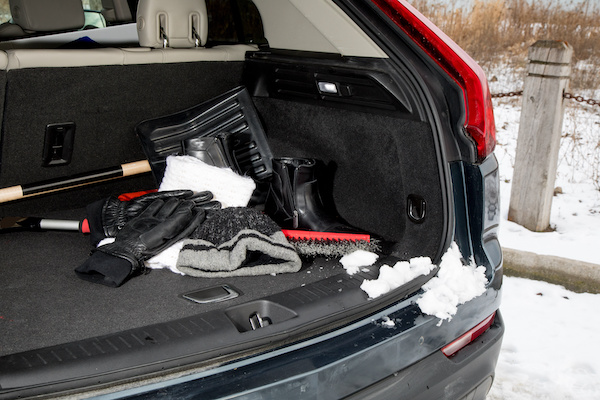
Winter weather can be unpredictable, and it's essential to be prepared for unexpected emergencies on the road. So here are some important items to carry in your trunk this winter: Shovel: A shovel can be a lifesaver if you get stuck in the snow. It can help you dig your car out of a snowbank or create a path for your tires to get better traction. Ice scraper: An ice scraper is an essential tool for clearing ice and frost from your windows and windshield. Make sure to keep one in your trunk so you can see clearly while driving. Jumper cables: A dead battery is a common cause of car problems, especially in the winter. Keep a set of jumper cables in your trunk in case you need to jump-start your battery or help someone else with their vehicle. Tow strap: If you get stuck in the snow and can't get your car out on your own, a tow strap can be a helpful tool. Keep one in your trunk so you can call for help or us ... read more
Posted on 12/23/2022
Kinds of key fobs There are quite a few types of key fobs in the market today. The most common today is the switchblade or flip-style key fob, this one gives you the ability to hide the key when it is not in use. Key fobs range from aftermarket fobs to key fobs to ones that link directly to the Vin of your car, to the keyless fob. Key Fobs are getting more technologically advanced as time goes on. Some have remote start; some can summon your car and even park it! How often do the batteries need to be changed? For most key fobs the batteries last 3-4 years. Sometimes key fobs die without warning but usually, they start with not locking or unlocking the car with a single push of the button and build to it taking multiple tries to open or lock your car. Depending on the type of key fob you have you may be able to change the battery on your own with the battery size for your fob and a small screwdriver and the help of YouTube. If that sounds tedious t ... read more
Posted on 11/29/2022
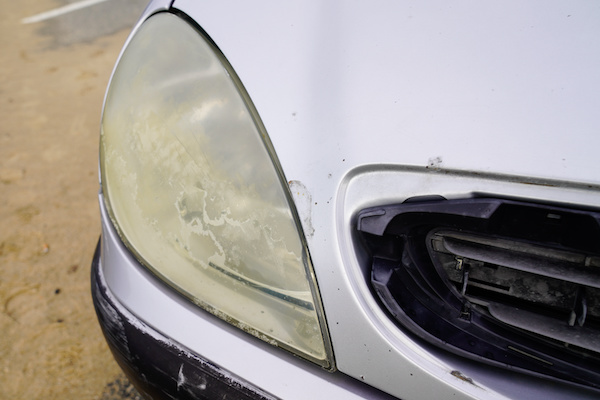
Modern cars no longer have glass coverings on their headlights. Nowadays, automobile light bulbs are protected by polycarbonate plastic coverings, which is a durable plastic made to be resistant to harsh road conditions. They are also not as dangerous as glass if shattered in a collision or accident. After an extended period of exposure to the sun’s UV rays, dirt, debris, chemicals (like road salt), and other harmful pollutants, the lens is likely to oxidize. When this happens, the clear top cover may appear hazy and even turn yellow. As a result, your headlights may look significantly dull, even if your light bulbs work fine. That is why not all foggy headlights need to be replaced. With the work of the experienced team at Sunny Service Center, we can restore your headlights to look brand new again. We offer amazing headlight restoration services to ensure your car lights are always running in tip-top shape. How to Prevent Headlight Oxidation Regular vehicle was ... read more
Posted on 10/27/2022
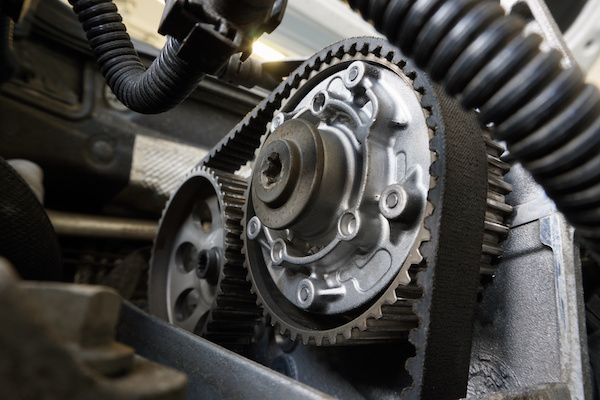
It is a rubber loop that has ridges carved into it. It keeps them in synchronization by going around the teeth of the crankshaft, which connects to the pistons, and the camshaft, which regulates the valves. In other words, it controls the timing of the pistons' up-and-down movement to open and close valves. Most engines' valves and pistons are literally headed for collision if a belt isn't performing its job. Additionally, something may go wrong in an instant due to the engine's high rate of rotation. The worst-hit parts are the valves, which typically bend when the piston hits. However, the cylinder walls and piston may also be harmed. It entails severe engine damage and pricey repairs. Thankfully, it can also be prevented. On the side of the road, a gray car is parked, and someone is peering under the hood. For the manufacturer's advice on when to change your belt, consult your owner's manual. The majority of mechanics advise changing it between 60,000 and ... read more
Posted on 10/27/2022
It is important to check the fluids under your hood regularly. Sometimes it can be confusing under there and it is important to get the fluids into the right place. Colin and Pooh Bear walk you through what to look for in this video to take all the guesswork out of figuring out what fluid goes where. https://youtu.be/S_towp5Q0WM The fluids you should be checking at least once a month are: Oil Windshield wiper fluid Power steering fluid Brake Fluid Coolant Transmission Fluid- This may or may not be in your car. Some cars have an electric transmission, which does not need fluid. The reason for the monthly check is to catch a leak and to check the color and quality of the fluids. For warned is forearmed and catching things early can not only help your car but your wallet as well.